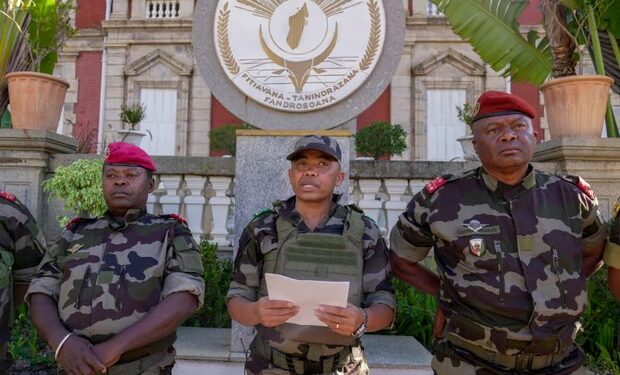The African Union has suspended Madagascar following the army’s assumption of power after President Andry Rajoelina was impeached by parliament amid weeks of mass protests. The move marks the latest political upheaval in the island nation’s turbulent democratic history.
Military steps in after impeachment vote
Madagascar’s parliament voted earlier this week to impeach President Rajoelina, citing “gross misconduct” and failure to address mounting unrest and economic hardship. Hours after the decision, army commanders announced they had taken control of the government “to restore order and stability.” General Richard Rakotomalala, the head of the armed forces, is expected to be sworn in as interim president later today.
African Union’s firm response
In a statement issued from Addis Ababa, the African Union’s Peace and Security Council said it was suspending Madagascar’s membership “with immediate effect” until constitutional order is restored. The AU condemned the military’s intervention, calling it “an unconstitutional change of government” and urged all parties to pursue dialogue and a civilian-led transition.
The organisation also warned of possible targeted sanctions if the military fails to commit to holding elections within a reasonable timeframe.
International reaction and concern
The United Nations, the European Union, and several regional partners have echoed the AU’s stance, expressing deep concern over the situation. France, Madagascar’s former colonial power, called for restraint and a return to civilian rule. Meanwhile, the United States said it was “closely monitoring developments” and urged respect for democratic institutions.
Protests and political paralysis
The crisis follows months of anti-government demonstrations in the capital, Antananarivo, driven by anger over inflation, unemployment, and allegations of corruption within Rajoelina’s administration. Protesters had demanded the president’s resignation, accusing him of neglecting rural regions and prioritising political allies.
Analysts say the military’s move reflects frustration within the armed forces over the government’s inability to contain the unrest, but warn that such intervention risks deepening the political divide.
Next steps uncertain
As General Rakotomalala prepares to assume power, the path forward remains unclear. The army has pledged to maintain security and “prepare the ground for elections,” but has not provided a timeline. Opposition leaders and civil society groups are calling for international mediation to prevent further instability.
Madagascar, which has experienced multiple coups since its independence in 1960, now faces renewed uncertainty over its democratic trajectory.
Newshub Editorial in Africa – 16 October 2025




Recent Comments